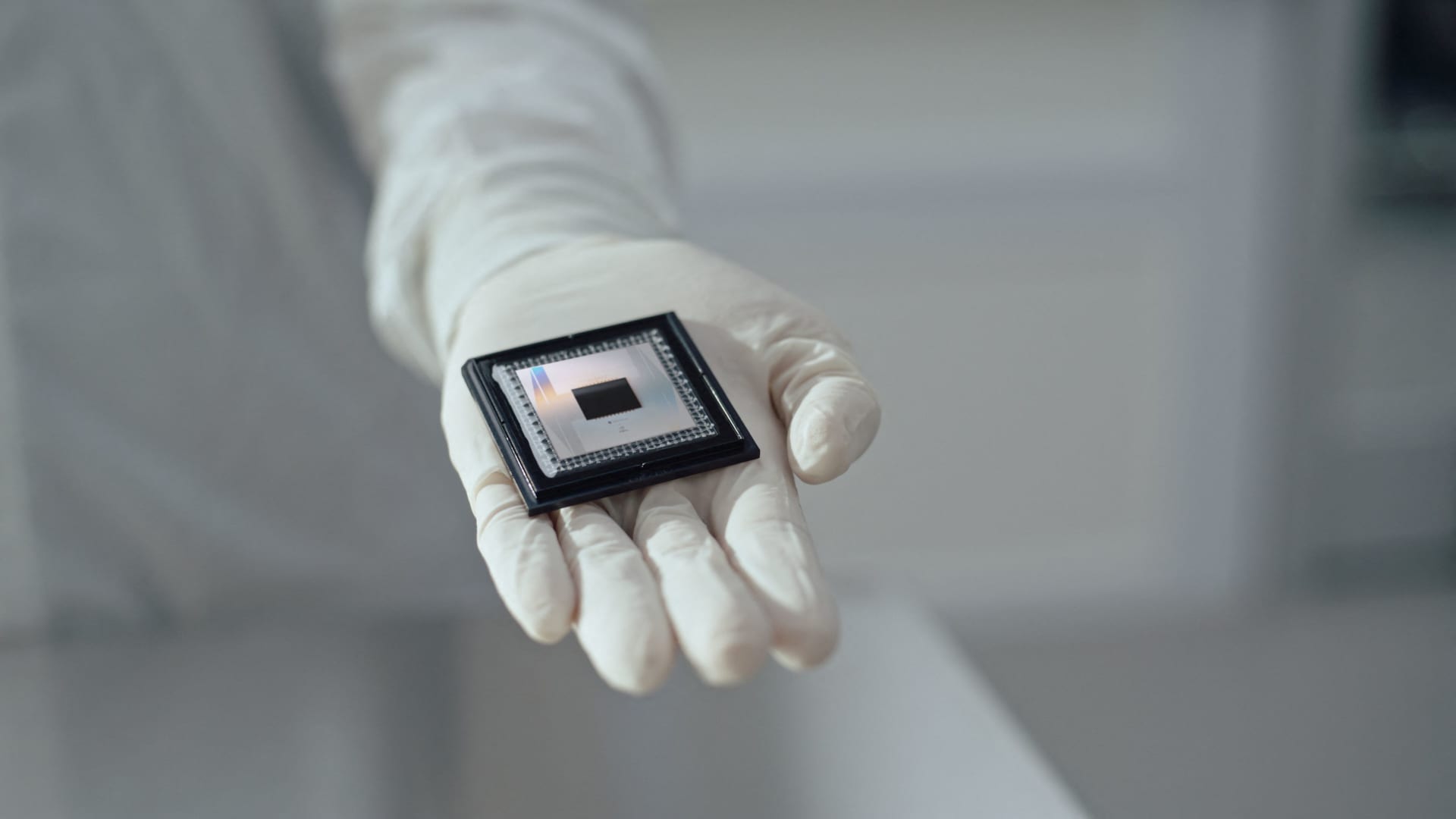Google Quantum AI’s “Willow” chip in an undated handout picture obtained by Reuters on Dec. 6, 2024.
Google | By way of Reuters
Google has unveiled a brand new chip that it says marks a significant breakthrough within the subject of quantum computing, an space seen as the following frontier for a lot of tech corporations.
Nonetheless, whereas Google’s achievements have been famous for advancing the sector, specialists say that quantum computing nonetheless has no real-world makes use of — but.
“We’d like a ChatGPT second for quantum,” Francesco Ricciuti, affiliate at enterprise capital agency Runa Capital, instructed CNBC on Tuesday, referencing OpenAI’s chatbot that has been credited with driving the growth in synthetic intelligence. “That is most likely not that.”
What has Google claimed?
Proponents of quantum computing declare will probably be capable of remedy issues that present computer systems cannot.
In classical computing, info is saved in bits. Every bit is both a one or zero. Quantum computing makes use of quantum bits or qubits which may be zero, one or one thing in between.
The idea is that quantum computer systems will have the ability to course of a lot bigger volumes of information, resulting in potential breakthroughs in areas like medication, science and finance.
Google on Monday introduced Willow, its newest quantum chip.
“Usually the extra qubits you utilize, the extra errors will happen, and the system turns into classical,” Hartmut Neven, founding father of Google Quantum AI, wrote in a weblog publish.
Willow can cut back errors “exponentially” because the variety of qubits is scaled up, the U.S. tech large stated, which “cracks a key problem in quantum error correction that the sector has pursued for nearly 30 years.”
Google Quantum AI’s Hartmut Neven (left) and Anthony Megrant analyzing a cryostat fridge for cooling quantum computing chips at Google’s Quantum AI lab in Santa Barbara, California, on Nov. 25, 2024.
Stephen Nellis | Reuters
Google measured Willow’s efficiency utilizing the so-called random circuit sampling (RCS) benchmark, which presents a computational process that is tough for classical computer systems to resolve.
Willow carried out a computation in below 5 minutes that might take one in every of as we speak’s quickest supercomputers 10 septillion years — or 10,000,000,000,000,000,000,000,000 years — Google stated.
“This mind-boggling quantity exceeds identified timescales in physics and vastly exceeds the age of the universe,” Neven stated.
Shares of Google guardian Alphabet had been practically 4% increased Tuesday morning. It is unclear if the transfer was partly as a result of Willow’s launch.
Has Google really made a quantum breakthrough?
Google’s Willow chip has demonstrated a “new milestone in how quantum computer systems can cope with errors that occur throughout their operation,” in line with Winfried Hensinger, professor of quantum applied sciences on the College of Sussex.
“Their method turns into more practical in decreasing errors the extra additional qubits are getting used to right for these errors. It is a crucial milestone for quantum computer systems.”
However regardless of optimism that quantum computing may in the future change the world — or no less than computer systems’ function in it — specialists within the subject have advised that Google’s quantum computing breakthrough continues to be missing in real-world makes use of.
Runa Capital’s Ricciuti stated that Google’s claims of success are “based mostly on duties and benchmarks that aren’t actually helpful for sensible instances.”
“They’re attempting to outline a very excessive downside for regular computer systems that they’ll remedy with quantum computer systems. It’s wonderful they’ll try this, nevertheless it does not actually imply it’s helpful,” Ricciuti added.
Hensinger stated that Willow “continues to be properly too small to do helpful calculations” and that quantum computer systems would require “tens of millions of qubits” to resolve actually essential business issues. Willow has 105 qubits.
In the meantime, Google’s chip is predicated on superconducting qubits, a expertise that requires intense cooling, which may very well be a limiting think about scaling up.
“It might be essentially arduous to construct quantum computer systems with such giant variety of qubits utilizing superconducting qubits as cooling so many qubits to the required temperature – near absolute zero – can be arduous or not possible,” Hensinger stated.
Google’s push towards real-world use
For its half, Google says the RCS benchmark has “no identified real-world purposes.” In the meantime, the corporate has carried out “scientifically fascinating simulations of quantum programs, which have led to new scientific discoveries however are nonetheless inside the attain of classical computer systems.”
Google is now aiming to do each concurrently.
“Our aim is to do each on the identical time — to step into the realm of algorithms which might be past the attain of classical computer systems and which might be helpful for real-world, commercially related issues,” Google’s Neven stated.
Nonetheless each Hensinger and Ricciuti agree the developments by Google add to the thrill round quantum computing and continued growth within the house.
“This end result will increase confidence additional that humanity will have the ability to construct sensible quantum computer systems enabling among the excessive impactful purposes quantum computer systems are identified for,” Hensinger stated.
